Sometimes similar symptoms may confuse you whether it is UTI or STD. But Yes, there is a huge difference between Urinary Tract infections (UTI) and Sexually Transmitted Diseases (STD).
As human beings, we all know that our bodies sometimes suffer from various diseases caused by viruses and bacteria. Among all types of infections and diseases, the two most commons are UTI (Urinary Tract infections) and STD/STI (Sexually Transmitted Infection/Disease).
People often get confused between these two as these two carry the same symptoms after attacking the human body. Every Year thousands of people are diagnosed with UTI and STD. The symptoms may cross over sometimes and if not diagnosed on time, it can be a very serious matter to handle.
We have to understand the difference between them so that we may fix the time to see a doctor. As both involve genitals, identifying them on time is a sensitive issue because it involves drastically different treatment and medication. We should learn about the symptoms, differences, and steps to prevent them.
You may check our recent publication on 23 benefits of vaginal steaming that can help women with UTI and SDT related issues.
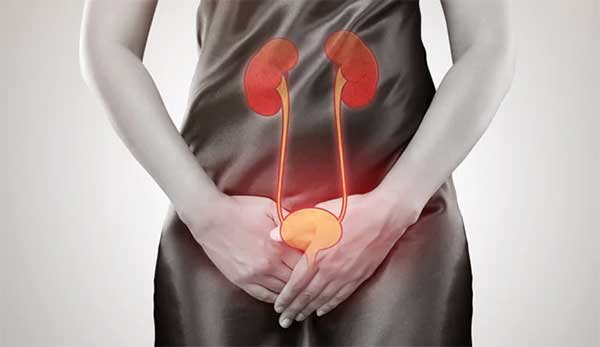
What is UTI?
Generally a UTI (Urinary Tract Infection) is an infection that may affect any part of your urinary system. Be it the urethra, kidneys, bladder, or ureters. It is caused by bacteria when it enters the urethra. Sometimes E.Coli bacteria may get out of your anus and enter into the urethra. You may check our recent solutions on Bladder Sling Complications.
They travel to the bladder from there and affect it. Though bladder infection is the most common type, it will gradually affect your kidney if not treated on time. People regardless of any gender may suffer from UTI.
But chances are high for women of every age as the distance between women’s urethra and anus is not long. Experts say that many women may have repeated infections for years whereas one man out of 10 will suffer from it in their lifetime.
As UTI can happen in any part of your urinary system, Different names have been given to each type. Such as:
1. Cystitis
When an infection happens in the bladder only, it is called cystitis. it makes you feel like peeing all day or you may feel hurt while peeing. Lower belly pain, cloudy urine, or blood in the urine are also symptoms of cystitis.
2. Pyelonephritis
Your kidneys are affected by this type and you may suffer from nausea, Fever, Vomiting. It might cause pain in the upper back.
3. Urethritis
When the bacteria directly goes to the urethra through the bladder, it is called Urethritis infection. Anyone who is infected might feel a burning sensation while peeing.
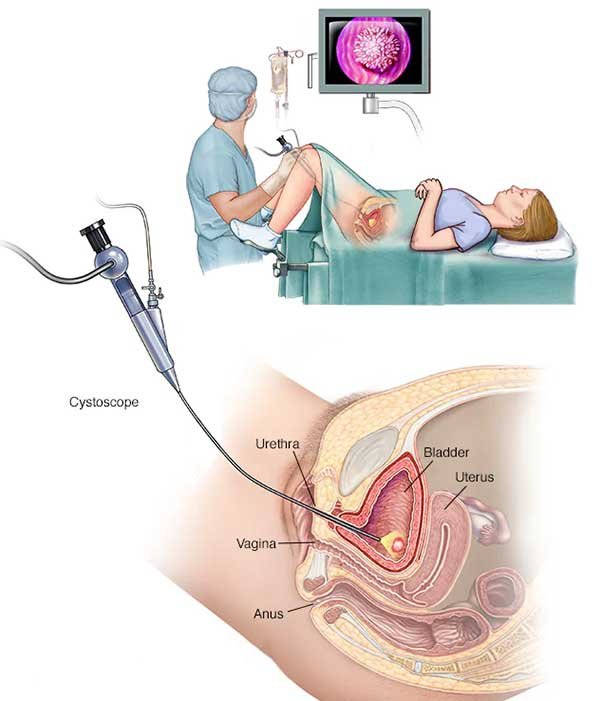
10 Common UTI Symptoms
There are a bunch of symptoms that can assure you of having a urinary tract infection. The human body gets affected by so many different bacteria, viruses, and fungi. UTI is no less than that. When it happens, It brings several hassles to harm your body or to get noticed. You have a UTI if you have the following symptoms:
- Frequent peeing all day long
- Burning Sensation
- Fever/ chills
- Nausea/Vomiting
- Cloudy or dark pee
- back side pain or lower abdomen pain
- blood discharge while peeing
- Foul smelling
- Tiredness
- soreness or cramps in your lower belly
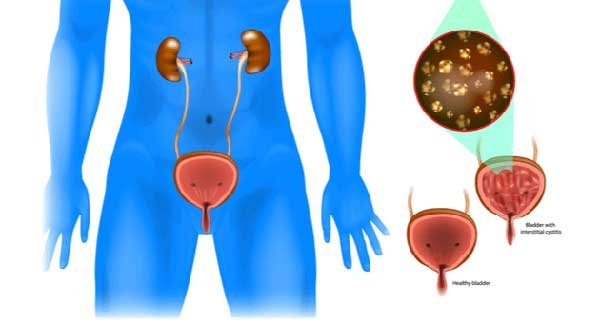
5 Male UTI Symptoms
As most symptoms are common, still some should be differentiated in men and women. The Male UTI symptoms include:
- Dysuria (tingling or burning after urination)
- Hematuria ( blood comes out with urine)
- Urgency of urination
- Low fever
- Cloudy and odorous urine

5 Female UTI Symptoms
- Urine that may look milky
- lower abdomen pain or pressure
- Blood in the urine. Usually happens in younger ones.
- Fever indicates reaching the kidneys.
- Older women feeling weak, fatigued and shaky.

What to do if you think you have a UTI?
The first thing you have to do is check all your symptoms thoroughly all by yourself if you suspect something different in your body. You may check online to understand your symptoms. And then if you suspect you have UTI, then you need to understand the severity of it.
If you don’t have any fever or chills and the symptoms are mild then you don’t need to worry. Try to drink 2/3 liters of water a day to keep you well hydrated. You must see a doctor first if your health condition is deteriorating. Your doctor will ask you to do a test first which includes urine samples.
If the test results are positive and you are diagnosed with a urinary infection, your doctor may prescribe you proper medication or he might ask you to do some more tests like ultrasound, city scan or an MRI. These help to get a proper picture of your bladder and urethra.
After this, your doctor will prescribe you the medication you need as per your reports, commonly antibiotics. You need to take all the medication as per the prescription. Even if you feel better than in previous days, you have to complete your antibiotic course. If you leave it midway, your UTI may stay untreated. You can use hot water bags or a heating pad to feel better.
Urinating during the infection hurts a lot. Still, you shouldn’t hold it. Whenever you feel like peeing, just do it. Women get UTI’s much more easily as their urethras are shorter than men. So E.coli bacteria mostly affect them by entering into the bladder from the anus. so wiping out every now and then is a must whether you have UTI or not. If it happens frequently, close monitoring by expert doctors is a must.

What is STD?
Sexually transmitted diseases (STD) are those which get transferred from person to person during sexual intercourse if anyone of them is infected. STD is commonly known as sexually transmitted infections (STI). They can spread through intimate physical contact but mainly it passes through vaginal, oral, or anal sex.
An STI can be of different types and one can only get infected if he or she is sexually active. People can be affected by different types and if not noticed, they can easily pass it to someone close. The only way to get informed about this is to get tested. Other than having unprotected sexual intercourse, people can also be infected through
- Having hepatitis A contaminated food
- Having skin to skin contact with an HPV or herpes affected person
- Having used needles or razors which may break or cut the skin and blood get into contact. This may catch the STD and start developing in the human body silently
- Trichomoniasis may spread through sharing used towels or clothes
- Some STD can pass through childbirth

13 Types of Sexually Transmitted Diseases
- HIV
- Syphilis
- Chlamydia
- Herpes
- Gonorrhea
- Trichomoniasis
- HPV(human papillomavirus)
- PID (pelvic inflammatory disease)
- Hepatitis A and B
- Mycoplasma genitalium
- Pubic Lice
- scabies
- Shigella in MSM
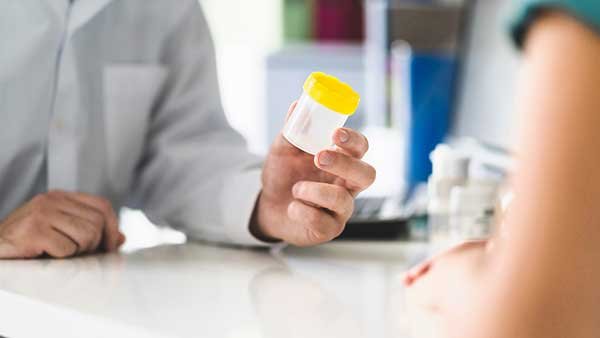
9 STD Symptoms
STDs may share the same symptoms as UTIs. Such as a burning feeling while peeing or pack pains but there are obviously some differences. The following symptoms are very common in men and women. These are:
- Abnormal discharges from Anus, Vagina or penis
- Rash or blisters around the genitals
- Pelvic pain
- Lumps or skin growth
- Painful and heavier period with heavy bleeding
- Itchiness around the genital parts
- Cloudy or dark urination
- Painful sexual intercourse
- Urge to pee
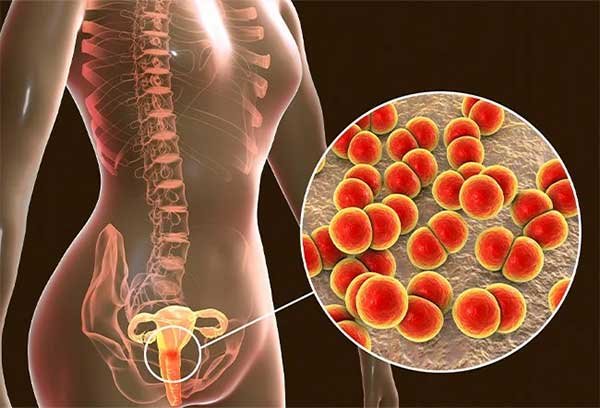
What to do if you think you have STD?
Most STDs are asymptomatic in the first place or it gets unnoticed for having similar symptoms of UTI. People often get confused and mix it with UTI and don’t get it treated which worsens the situation. STDs are often diagnosed as UTIs first. So if you think you are facing the above symptoms and nothing really is making you feel better, just see a doctor as soon as possible.
Also if you had unprotected sex or sex with multiple partners or you are planning pregnancy, then you should definitely see a doctor and get yourself checked. The doctor may ask you to do some tests to assure you about your condition such as a blood test or screening test.
And if your tests are positive and get your partner’s test done also. You have to follow your doctor’s advice if you are infected with any of these diseases. All the STDs happen through STIs and some of them become diseases. Some are curable and some are chronic.
So you need to follow what medication you need to follow. STDs are more dangerous than UTIs. If you feel shy about being asked several personal questions by your doctor and don’t see him, you may call upon more problems for you and your partner.

STD in Women and Men in Details
Though symptoms like painful peeing and continuous urge of urination are the same in men and women, Some Symptoms may vary from gender to gender in sexually transmitted diseases. Women may suffer from different symptoms like heavy periodical bleeding, painful sex, foul, smelly, greenish or yellowish discharge from the vagina, lower abdomen pain. Men face abnormal discharges from penis and testicles pain.

How to tell the difference between UTI and STI?
Often UTI and STD share similar symptoms which bring misdiagnosis of the infection. It is seen that STI-affected persons are often diagnosed with UTI first and start taking medication according to it. This makes them antibiotic-resistant and later nothing else works on them.
Testing carefully is the first duty to tell the difference between these two closely related diseases. Urgency or burning during urination is common but there are some distinguishers that help to identify the STD. Along with the symptoms of UTI, STD adds more to it. They are:
- Vaginal or genital rash
- Painful intercourse
- Heavy bleeding during periods
- Feeling feverish
- Nausea
- Vomiting
- Joints swelling
- Sore throat
If any of these symptoms are present then it may indicate that the person is suffering from an STD, not a UTI. Also, it is known that the transmission mode is different. STDs are transmitted through sexual activities whereas UTIs frequently happen when bacteria like E.coli move from anus to urinary tract.
Also, people often tend to hold peeing for long and wipe from back to front which causes UTI. Using a spermicide for birth control can be another reason for UTI which differs from STD symptoms.

STD’s and UTI’s Increasing, Worsening, or Changing Symptoms
If any of these symptoms increase or worsen, be sure that your UTI may turn into STD. you need to see a doctor as soon as possible. Urinary tract infections keep coming back and the STD symptoms get mostly untreated, which can worsen the situation. You may feel shy to go to a doctor but you need to understand that without professional help you cannot be treated. Most STDs or UTIs are curable if it’s not chronic.

How to check if it is UTI or STD?
Without doing a medical test, it is impossible to diagnose whether you have UTI or STD. First, see a doctor and discuss all your visible symptoms so that doctor can understand your problem and suggest tests accordingly. If you go through a screen or urine test and it is found out that you may have STI, then the GP center may refer you to sexual health clinics.
In a Sexual health clinic, sexual health problems and urinary problems are treated. It is quicker than others and your information will be confidential if you choose to. You may share your personal information and the doctors will ask you some questions like:
- About your sex life
- May examine your anus or genitals
- Useful test that should be done
- Home testing for particular STD for you and your partner
However, diagnosis tests are largely unavailable in middle and lower-class countries but rapid and inexpensive tests for syphilis, gonorrhea, hepatitis, and HIV are available. These rapid tests help people to start their medication early. Like UTI, STDs are not easily curable. It needs long-term medication. To check UTIs, a urine test or ultrasound is quite enough. Also, the symptoms that they both share and differ help in the diagnosis of the ailment.

Don’t be Embarrassed
If you are going through a tough phase and experiencing all the symptoms of UTI or STD, don’t just feel shy and stay at home. Stay alarmed because it involves your physical health which may get worse if you sit idly and overlook the symptoms you have.
There are friendly health centers where you can get your tests done and start your treatment. If you don’t start on time, your UTI may come back and STD may turn into dangerous diseases like cancer and PID. If you meet your physician, he will suggest the best thing you can do to recover and stop transmission to others. So, just don’t be ashamed and start your medication first.
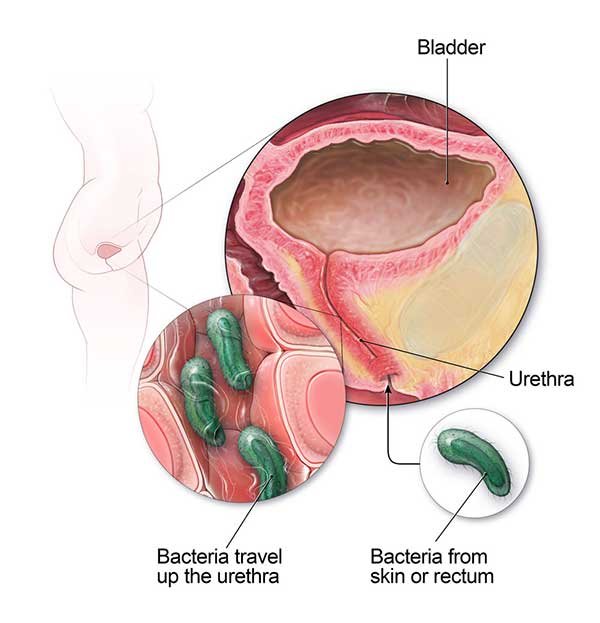
Where can I get tested and treated for an STD or UTI?
You are sick and trying to find out what has really happened, and then try to visit your physician whom you contact on a regular basis. Talk to him first and then if advise you to do some tests before treatment starts, then look out for immediate care centers who provide testing for UTI or STD.
Your doctor will examine you fully through a whole medical examination of your body to understand your current status of yours. Medication will be prescribed regardless of the infection. At this point, if you know what you have, A UTI or An STD then you should also know that some STDs are beyond cure and UTIs are curable through antibiotics.
Your medication plan will be managed by your physician and the clinic as per your financial condition. You may use your medical insurance as well. Your family doctor may treat you in a UTI case until it gets severe. If it infects the kidney, then you will be advised to meet a kidney specialist. Similarly, if you are diagnosed with an STD, your family doctor will send you to sexual health clinics to get better treatment on time.

12 Things to Do for Preventing UTI and STD?
Prevention is always better than cure. Suffering from UTI for days may weaken you and also STD is contagious which needs to be protected. To prevent UTI, we can follow some steps like-
- Do not hold your urine for long
- Drink plenty of water and keep yourself hydrated
- Wipe your genital area from front to back
- Pee before and after intercourse
- Change your birth control plans
- Avoid feminine products which are irritating
- Intake vitamin C
- Wear loose fitting dresses
- Drink cranberry juice
- Take probiotic
- Estrogen replacement therapy for older women.
- Use contraception

7 Habits for your Children to Prevent UTIs
- Emptying bladder completely
- Toilet breaks every one or two hours
- Teaching girls the wiping method
- Drink plenty of water and stay hydrated
- Taking bathroom breaks every 2 to 3 hours
- Avoid uncomfortable and tight underwear
- Avoid bubble bath

10 Things to Consider for Preventing STD
- Abstain yourself completely from sexual intercourse
- Be in a relationship with an uninfected partner
- Use contraception correctly and consistently
- Communicate with your partner
- Vaccinating yourself and your partner against the human papillomavirus (HPV), hepatitis A, and hepatitis B (HBV).
- Considering male circumcision
- Avoid alcohol and drugs
- Clean wash after every intercourse
- Do your HIV tests
- Avoid sharing underclothing
If you maintain good hygiene before and after sexual contact with your partner, you may prevent transmission. For that, you need to include washing hands and rinsing off before and after any type of sexual contact. Condoms and other barriers can be very useful in preventing STDs. It minimizes skin-to-skin direct contact, lessens direct transmission, though it is not 100% safe.

Can UTI be transmitted from woman to man, are UTI sexually transmitted?
A UTI is never considered as a sexually transmitted disease. But yes, the bacteria may be passed between partners and cause the infection. For example, the E.coli virus may travel to your vaginal opening from the anus through a penis. In some cases, UTI can be caused as a side effect of STIs like chlamydia and trichomoniasis.
Partners may pass the infection to each other through sexual activity. Sex during UTI may be painful and irritating but it never prevents you from doing it. It increases complications and that is why doctors ask patients to at least wait till finishing the entire treatment.
Though it is not contagious, it can be a sign of having an STD. UTI and STD share common symptoms and as UTI can be an effect of STD, you need to make sure that you are listening to your body, you must pee before and after sex, clean up the genital area neatly when you’re done, and Avoid cross-contamination by switching between vaginal and anal sex.

How do you get a UTI?
A UTI develops in a female or male body due to the presence of bacteria (microorganisms) that enter the urinary tract system and cause the infection. UTI through fungi is rare. We all know it happens because of E.coli bacteria traveling all the way from your anus to the urethra.
UTI infection may pass from you to your partner during sexual intercourse if you use fingers or sex toys into your urethra. UTIs can also be caused if you are suffering from STD like chlamydia, gonorrhea, and trichomoniasis.
you can be affected by UTI if you have already got it once(it happens mostly in women), you are obese or have diabetes or you are using a diaphragm or spermicide for birth control. Having kidney stones or other complications in the urinary tract may cause UTI.
All women are always at risk of UTI because of the short distance between the urethra and anus. And that is why women easily get infected with A UTI many times in their lifetime.
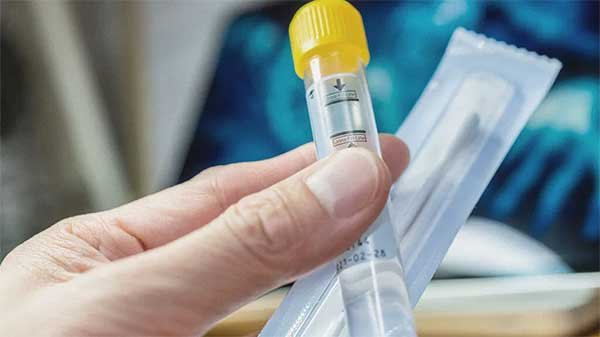
If you have chlamydia will you test positive for a UTI?
chlamydia is one of the sexually transmitted diseases which share similar symptoms like UTI. Both are caused by bacteria but the type is different. Chlamydia trachomatis causes chlamydia whereas E.coli is responsible for UTI. We need to know the transmission system of these into the human body is different.
Chlamydia can only be transmitted when two people are involved in sexual intercourse. UTI can never be transmitted like that though it increases the risk of being infected. People are often misguided because of the similar symptoms that both of these diseases bear. And often think that chlamydia brings UTI along.
But the distinguishable symptoms are that during chlamydia, a person will have yellowish vaginal or penile discharge. The other symptoms such as burning sensation and back pains, heavy bleeding during periods, pain during sex are similar to UTI.
But that doesn’t mean chlamydia brings UTI. The bacteria and way of transmission are different so it can be assured that Chlamydia doesn’t bring UTI with itself.
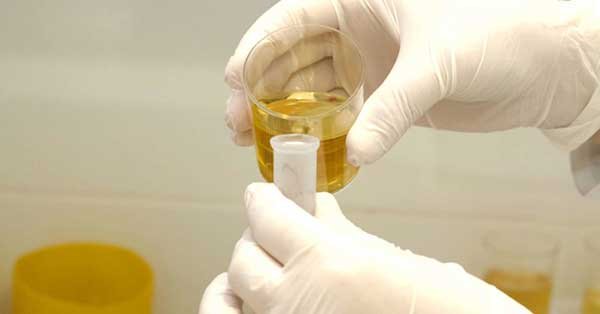
Frequent urination STD or frequent urge to urinate STD
STDs that generally cause frequent urination are chlamydia and gonorrhea. Chlamydia and gonorrhea are the two most curable STDs by far and along with other symptoms, frequent urination is a must.
Sometimes a patient may have no other symptoms of having an STD but frequent painful urination should be a telltale alert for him to do some tests and be confirmed about the disease. The same thing happens in the case of gonorrhea.
Though unlimited urination or painful urination is the prime cause of a UTI but STD like gonorrhea may have this symptom too. You should seek a doctor’s advice first if you face this problem at home. Get yourself tested and start treatment unlike other STDs, these two are curable.
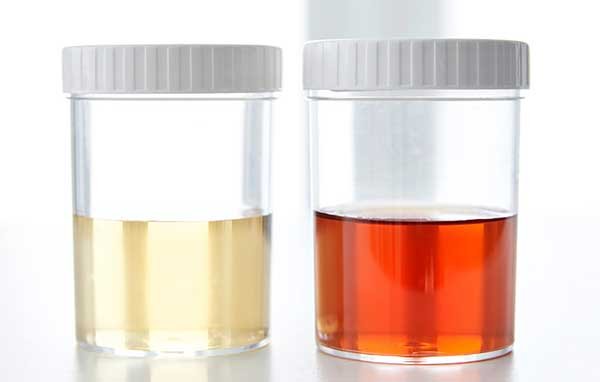
Can blood in urine be an STD?
Yes, blood in urine may be an indication of having an STD. in medical terms it is called hematuria which can be of two types. microscopic and gross hematuria. Gross hematuria can be spotted with naked eyes. Often people infected with STD like chlamydia and gonorrhea face gross hematuria.
Seeing blood in urine may be the worst feeling but it is an alarming call to see a doctor as soon as possible. Your chlamydia may remain silent and push UTI forward by showing similar symptoms. So if you see blood in your urine, just get yourself tested and take the doctor’s advice.
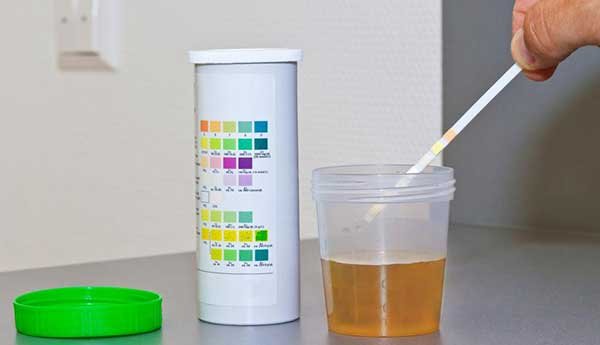
Uti vs Gonorrhea
UTI and gonorrhea share similar symptoms like burning while peeing, the frequent urge of urination, bloody urine, lower abdomen pain, etc. at the surface, all these clearly indicate UTI but if being tested, you can identify gonorrhea also. Of course, there are certain distinguishers between UTI and gonorrhea. If you want to distinguish between these two, you have to analyze certain signs in the correct context. You have to consider:
- Gender of the patient as UTIs are common among women
- How the event was preceded
- Time of the symptoms arrival
- Evolving of the disease
After this, you should find out the differences between UTI and gonorrhea because UTI can be treated easily but gonorrhea needs intensive care and medical support otherwise it won’t take much time to destroy your reproductive organs. The differences are:
Unlike UTI, gonorrhea may cause yellowish or greenish thick discharge through the penis or vagina. Testicular pain, Swollen, reddish scrotum or penile tip redness, and tenderness are common among men. Pain and bleeding during sex, bleeding between periods are common in women.
If you are younger and sexually active, then you have to consider all the symptoms being gonorrhea, if not then you may suffer from UTI. UTI happens in one day whereas gonorrhea has an incubation period of 3 to 7 days.
So whatever happens to you, you need to determine that both diseases cannot be treated well without professional medical help. A doctor’s advice and prolonged treatment are necessary as both are curable.
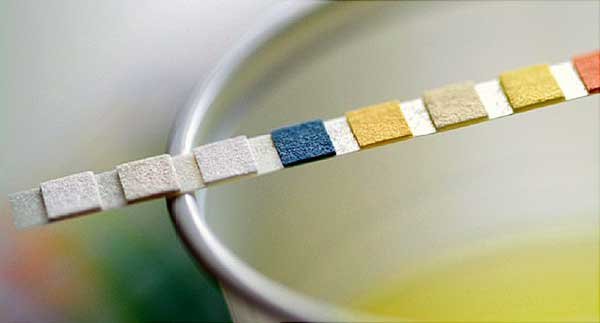
Can a UTI turn into a STDs or STDs that mimic UTI?
A UTI can never cause any type of STDs. If it is left untreated, it may cause serious kidney problems such as kidney stones which are very painful and require difficult treatment. But it will never cause chlamydia or gonorrhea. It is true that UTIs are often caused by the system of sexual activity but it is not directly connected.
Some STDs like chlamydia and gonorrhea mimic the symptoms of UTI. common painful urination, urge to urinate, pelvic pain, and so on. Also in chlamydia’s case, it remains silent in the human body and strongly delivers the signs of UTI. But these can never turn into one another because the reason or cause behind these two is different bacteria.
It may prolong the infecting method but cannot happen because of each other except chlamydia. Because of this, often patients are mistreated. Sometimes they get treatment for UTI while having STD inside. Close monitoring is needed because STDs are very sensitive and UTI can keep coming back if not treated properly.
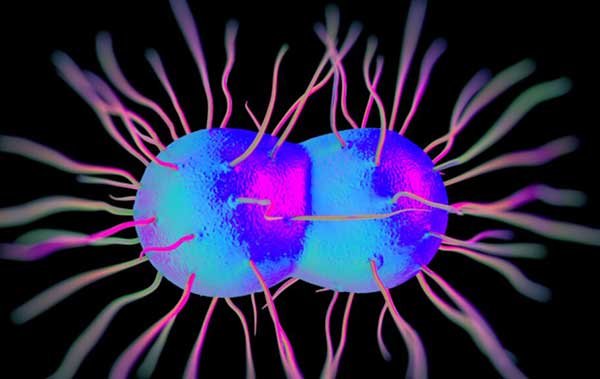
Does AZO help with STD symptoms?
AZO has a motto that enables a person to own his/her own day. AZO helps with STD symptoms by advocating for the needy person.AZO has healthcare advocates and high-quality health care products. They give the best advice and their website is full of information to fulfill your queries. They believe in an open conversation on health issues and enable a person to take charge of their own health.
The human body is full of surprises. One can never know when they will catch any types of diseases or sicknesses which will gradually worsen their health. UTI is a frequent health issue that keeps coming back (mostly women) and STDs are life-threatening.
Treatment is a must regardless of what you have. Also, you can go for prevention by maintaining some health rules so that you may never get a UTI or STD. Proper hygiene maintenance, Regular health checkups, communication with partners, and getting knowledge about the diseases may help in getting the best solution for your own health.
So try to understand your level of pain if any of these happen to you and get the best medical help on time to have a quick recovery.
